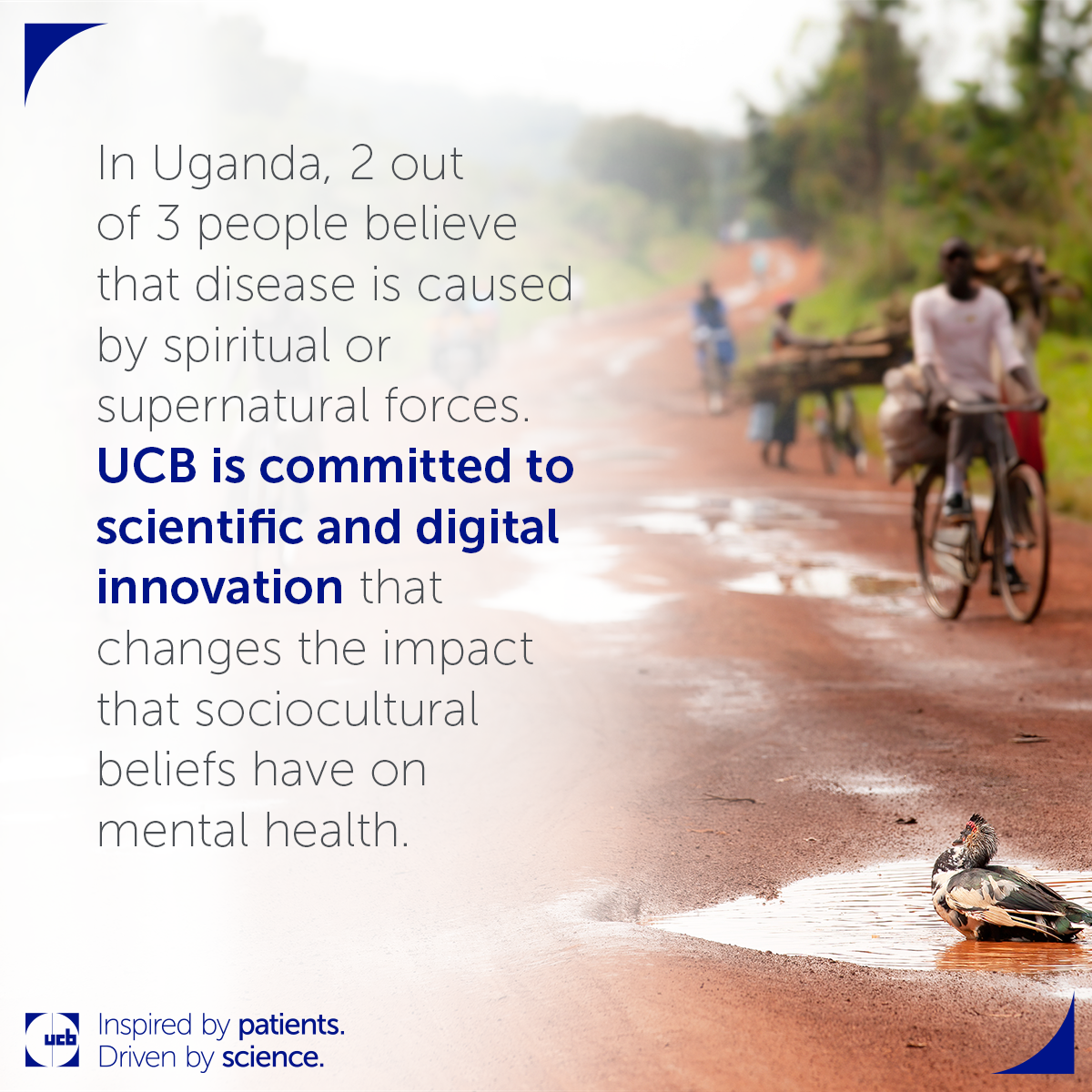
Everything we do at UCB stems from our purpose to create value for people living with severe diseases. We believe that everyone deserves to live the best life they can – as free as possible from the challenges of living with a severe disease. It is in this context that we aim to improve access to quality care for people with epilepsy in low-and middle-income communities (LMICs).
In Uganda, epilepsy is not uniformly understood as a biological, chronic disease. Two out of three people in the general population believe that the illness can be caused by spiritual or supernatural forces, and over a third (37%) believe that epilepsy is contagious1,2. These beliefs fuel fear, discrimination, and stigma. About half of the population does not believe that people with epilepsy should participate in activities considered by most as basic rights, such as marriage (47% oppose), school (32%), and playing with others (49%). It is in this context that adolescents with epilepsy live in Uganda.1,2
To combat stigma for people living with epilepsy in Uganda, UCB’s Digital Care Transformation team has partnered with Duke University and their ongoing collaboration with Makerere University in Uganda, who developed a SMART (Self-management and resilience app for youth living with epilepsy) APP for adolescents with epilepsy. The app has been designed from their extensive experience in the care of people living with epilepsy, with a focus on the impact that sociocultural beliefs have on mental health.
The application is unique in that its primary focus is on building resilience among adolescents to decrease negative thoughts. Compared to other epilepsy seizure and medication diaries, Duke‘s SMART APP extends well beyond this to explore the reasons for gaps in medication adherence, which is extremely important in low and middle income communities (LMICs) where medication availability impacts adherence. It also explores mood and social engagement, with interactive screens encouraging participation in resilience-building activities or exercises.
Clinicians, researchers, and community awareness program leaders concur that adolescent resilience is a critical target to change outcomes in epilepsy, especially in low-resource communities, where community beliefs about ancestral or demonic causation for epilepsy is pervasive. These beliefs drive stigma, which often prevents the adolescent from attending school and confers delays in reaching appropriate medical care. Patients living with epilepsy in LMICs suffer significant discrimination and isolation, and social engagement is markedly debilitated.1,2,3 The SMART APP will empower adolescents with epilepsy through awareness, education, and connection to support associations, and where feasible, creates pathways for community education and support group events.
This will be the first project of its kind to study and support resilience and self-management skills through awareness, engagement, and outreach in youth living with epilepsy in LMICs using app technologies.
Outcomes from this research collaboration will help us to better understand user experiences from low-income communities, such as Uganda, and optimize training experiences. Improving mental health for LMICs builds on our health equity work to develop new social business approaches to improve healthcare disparities across our global communities.
References:
- Koltai, D. et al. (2021): Sociocultural determinants and patterns of healthcare utilization for epilepsy care in Uganda. Epilepsy & Behavior. 114
- Kaddumukasa, M., et al. (2021): Epilepsy beliefs and misconceptions among patient and community samples in Uganda; Epilepsy & Behavior 114
- Ibinger, E., et al., (2019): Impact of knowledge, attitudes, and sociocultural factors on school enrollment of children with epilepsy in Gabon; Seizure, 71:145-150.
Choose Country
- Global Site – English
- Australia – English
- België – Engels
- Belgique – Anglais
- Brasil – Português
- България – Български
- Canada – English
- Canada – Français
- 中国 – 中文
- Česká Republika – Angličtina
- Danmark – Engelsk
- Deutschland – Deutsch
- France – Français
- España – Español
- Ελλάδα – Ελληνικά
- India – English
- Ireland – English
- Italia – Inglese
- 日本 – 日本語
- Казахстан – ағылшын тілі
- 한국 – 한국어
- Luxembourg – Anglais
- Luxemburg – Engels
- Magyarország – Angol
- México & Latinoamérica – Español
- Nederland – Engels
- New Zeeland – English
- Norge – Engelsk
- Österreich – Deutsch
- Polska – Polski
- Portugal – Inglês
- România – Engleză
- Россия – Русский
- Slovensko – Anglický
- Suomi – Englanti
- Sverige – Engelska
- Schweiz – Deutsch
- Suisse – Français
- Türkiye – Türkçe
- Україна – Англійська
- United Kingdom – English
- U.S.A. – English


